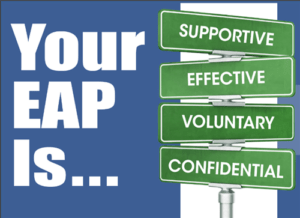Contents
- 1 EAP Therapy: Mental Health For Workers
- 2 EAP Therapy
- 3 Mental Health For Employees
- 4 How Does EAP Works?
- 5 When To Take EAP Therapy?
- 6 The Four Primary Components Of The EAP
- 7 Who Provides EAP Therapy?
- 8 EAP Therapists
- 9 How does EAP Therapist work?
- 10 Who Should Use This Service And Why?
- 11 A Word From MantraCare
EAP Therapy: Mental Health For Workers
 Mental health is an important issue that affects people of all ages, races, and socioeconomic backgrounds. Unfortunately, mental illness is often stigmatized in our society. This stigma can make it difficult for those who are struggling to get the help they need because they fear being judged or discriminated against. The (Employee Assistance Program) EAP therapy provides confidential counseling services to employees and their families when there is a personal or work-related problem that needs attention outside the scope of traditional employee benefits programs.
Mental health is an important issue that affects people of all ages, races, and socioeconomic backgrounds. Unfortunately, mental illness is often stigmatized in our society. This stigma can make it difficult for those who are struggling to get the help they need because they fear being judged or discriminated against. The (Employee Assistance Program) EAP therapy provides confidential counseling services to employees and their families when there is a personal or work-related problem that needs attention outside the scope of traditional employee benefits programs.
The EAP offers professional counselors with expertise in many areas including depression, anxiety disorders, abuse problems, marital conflict, and family issues such as parenting skills training. They also offer financial counseling services which may be beneficial to those who are struggling with paying their bills on time.
EAP Therapy
There are many aspects that make up the Employee Assistance Program (EAP) therapy. It consists of three primary facets: the individual, the mental health professional, and the employer. There are four primary components to EAP therapy; these are confidentiality, voluntariness, rapid access, and competence.
The confidentiality is so there are no issues with what is being said is shared with any other people outside of the treatment process. The voluntariness aspect says that there has to be a choice for individuals who are struggling to go through therapy or participate in any type of treatment process. Rapid access is necessary so employees can get help when they need it rather than waiting for available resources. Lastly, competence means being a professional therapist who can deal with any type of mental health issues that may arise. This is because not everyone will have the same symptoms or experience the same problems as someone else.
Mental Health For Employees

Mental health is an important issue that affects people of all ages, races, and socioeconomic backgrounds. Unfortunately, mental illness is often stigmatized in our society. This stigma can make it difficult for those who are struggling to get the help they need because they fear being judged or discriminated against.
The Employee Assistance Program (EAP) provides confidential counseling services to employees and their families when there is a personal or work-related problem that needs attention outside the scope of typical employee benefits programs. The EAP offers professional counselors with expertise in many areas such as depression, anxiety disorders, abuse problems, marital conflict, and family issues such as parenting skills training. They also offer financial counseling services which may be beneficial to those who are struggling with paying their bills on time.
How Does EAP Works?
For many people, mental health is ignored or stigmatized. Sometimes, it can be difficult to get help because of this stigma. The EAP provides confidential counseling services to employees and their families. When there is a personal or work-related problem that needs attention outside the scope of traditional employee benefits programs.
The voluntariness aspect says that there has to be a choice for individuals who are struggling to go through therapy or participate in any type of treatment process. Rapid access is necessary so employees can get help when they need it rather than having to wait for available resources. Lastly, competence means that there needs to be a professional who can deal with any type of mental health issues that may arise. This is because not everyone will have the same symptoms or experience the same problems as someone else.
When To Take EAP Therapy?

People seeking help through an EAP may be experiencing any of the following issues:
- Anxiety
- Depression
- Psychological trauma
- Alcohol or drug problems
- Grief and loss
- Problems with relationships (partners, family member, coworkers)
EAP therapy may be helpful for people dealing with any of the following work-related issues:
- Career development
- Frustration with the boss or coworkers
- Stress-related health problems (chest pain, headaches, back pain)
- Workplace Depression and anxiety
- Difficulty adjusting to a new work schedule
The Four Primary Components Of The EAP
The EAP is an important resource for employees who are experiencing mental health issues at work. An EAP therapist can provide confidential assessments and short-term psychotherapy services to employees experiencing workplace mental health issues.
The four primary components of the EAP are confidentiality, accessibility, affordability, and effectiveness. These four components make it possible for employees to receive quality care without having to worry about their privacy or finances. These four components are also the main reasons why the EAP is often an employee’s first line of defense against workplace stress.

Confidentiality
The nature of work has changed substantially over the last century, but our society’s approach to mental health has not kept pace. In fact, there is a stigma of mental illness that keeps many people from seeking help. The EAP was created to help employees access mental health services without having to worry about stigma or confidentiality issues. When a worker goes to an EAP, the therapist assigns a code that tells the company who they are seeing and what kind of care they need.
Affordability
In most cases, the only person who has access to access this information is the EAP therapist. In some cases, a manager may also have some involvement in the treatment plan. But only when necessary for workplace safety or productivity. Very few companies have an in-house mental health professional on staff to provide employee assessments and therapy services. These therapies are very affordable for companies and they also reduce overall healthcare costs as well.
Accessibility
Rapid access means that employees can get help when they need it rather than having to wait for available resources. This is important so people are not dealing with their stressors on their own which can lead to negative effects on health. Including depression and other behavioral disorders, substance abuse, and other health.
Often, EAPs provide online services so employees can contact a therapist from anywhere in the world via phone, email, or chat. Some EAPs collaborate with telemedicine companies. That can provide video therapy services for employees who are at risk of losing their jobs if they miss work to see a therapist in person.
Effectiveness
EAP Therapy is effective in solving problems that affect the mental health of employees. They provide emotional support to the ones who are dealing with mental health issues. EAP therapies are effective in increasing employee morale and boosting team productivity.
Who Provides EAP Therapy?

In some cases, a company might have on-site counselors who will assess an employee after an incident on the job. These professionals are not EAP therapists and may not be able to keep all interactions confidential. Organizations that provide EAP services typically contract with a third-party vendor to maintain confidentiality and the highest standards of care. EAPs are administered independently from the employer. So there is no way for an employer to override the services or track employee progress.
An EAP works with a person’s doctor or community-based mental health care provider to keep records of treatment confidential.
The EAP service is for anyone who has a mental health issue that is getting in the way of their work or is impacting their ability to function at work. It can be for employees, coworkers, supervisors, managers, HR departments, and family members. The goal of this service is to help workers learn how to reduce the personal impact of work-related stress so they can be more productive on the job.
EAP Therapists

Many professionals operate under the assumption that increased stress and financial constriction lead to negative effects on health, including depression and other behavioral disorders, substance abuse, and other health-related problems.
EAP therapy is a type of mental health service provided to people who are experiencing problems in the workplace. An EAP therapist is typically on-call for employees, providing short-term counseling or consultation services during times of distress. They are generally employed by an organization but provide services to clients on behalf of the company.
EAP therapists are usually mental health professionals such as psychologists, psychiatrists, social workers, or counselors. They may also be master’s-level therapists with special training in EAP work and counseling techniques.
The primary role of an EAP therapist is to provide confidential assessments and short-term psychotherapy services. To employees experiencing workplace mental health issues. In many cases, the services are provided by phone or online. If an employee needs ongoing mental health care, they may go to a community-based provider.
Employers typically contract one EAP from a list of local providers. This allows employees easy access to their therapists and ensures that confidentiality is private during all interactions between therapist and client.
EAP therapists specialize in career development and organizational assessments to help employees deal with issues related to their careers, workplace interactions, or work schedule.
A typical EAP session lasts about an hour and focuses on the client’s current difficulties at work. The therapist may discuss other life stressors if they are impacting job performance. An EAP therapist’s role is to listen carefully, ask specific questions about the problem, and offer suggestions for how to find healthy solutions. Therapy includes practical strategies for managing stress or improving relationships at work.
How does EAP Therapist work?
EAP therapists are trained to help employees with mental health problems in the workplace, including anxiety and depression. The confidential, affordable services provided by the EAP will help employees stay at work longer and provide a better quality of life.
EAP therapists do not provide formal diagnoses. They are trained to look for patterns in behavior that suggest a mental health issue is present.
EAP therapists are trained to work with supervisors, managers, and HR departments to ensure compliance over all issues related to employee mental health. The EAP therapist will help the company create an effective workplace wellness plan that serves all members of the team.
EAP therapists help employees with workplace stress, anger issues, interpersonal relationships, substance abuse problems, and family problems. The goal of the EAP service is to help workers learn how to reduce the personal impact of work-related stress so they can be more productive on the job.
EAP therapists are also trained to recognize mental health issues in the workplace connected with violence, harassment, and bullying. EAPs will work with employees who are traumatized by their experiences in the workplace because of their job duties. Many companies that provide employee assistance services also offer personal safety products like panic buttons and security monitoring devices.
EAP therapists help employees with work-life balance. They will help workers access community resources and develop individualized wellness plans that include healthy habits, goal setting, and activities to promote personal happiness and satisfaction in life outside of the workplace.
Who Should Use This Service And Why?
The EAP service is for anyone who has a mental health issue. That is getting in the way of their work or is impacting their ability to function at work. It can be for employees, coworkers, supervisors, managers, HR departments, and family members. People reach out to EAPs due to different reasons. It could be because they are feeling stressed or anxious before an important project or meeting with their boss. Other times people reach out to EAPs because they feel overwhelmed with what’s going on at work. And need support to keep themselves safe and healthy.
EAP therapists will not diagnose someone with a mental health condition. But will offer treatment services that are able to help them. To improve wellness and regain stability with how they’re coping with stressors in life. The EAP therapist will help patients learn coping skills and be able to function better at work.
EAP therapists may ask questions like: Is this person experiencing symptoms of depression or anxiety? Do they have thoughts of self-harm? Would they describe their mood as anxious or irritable? Do they have a hard time sleeping at night? Is this person drinking too much alcohol, smoking marijuana, or relying on other substances to get through the day?
A Word From MantraCare
Do you want to keep your employees happy, healthy, and productive? Join our employee assistance program and get a healthier workplace.


